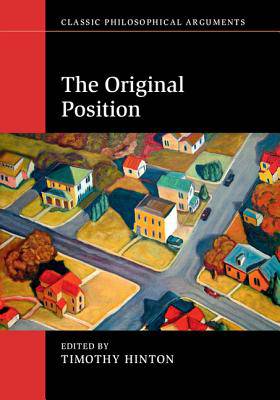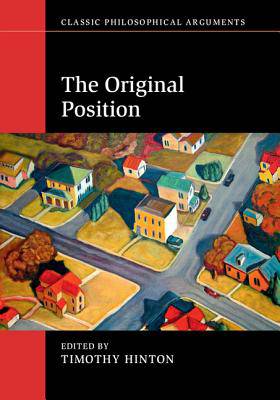
- Afhalen na 1 uur in een winkel met voorraad
- Gratis thuislevering in België vanaf € 30
- Ruim aanbod met 7 miljoen producten
- Afhalen na 1 uur in een winkel met voorraad
- Gratis thuislevering in België vanaf € 30
- Ruim aanbod met 7 miljoen producten
Zoeken
Omschrijving
At the centre of John Rawls's political philosophy is one of the most influential thought experiments of the twentieth century: which principles of justice would a group of individuals choose to regulate their society if they were deprived of any information about themselves that might bias their choice? In this collection of new essays, leading political philosophers examine the ramifications and continued relevance of Rawls's idea. Their chapters explore topics including the place of the original position in rational choice theory, the similarities between Rawls's original position and Kant's categorical imperative, the differences between Rawls's model and Scanlon's contractualism, and the role of the original position in the argument between Rawls and other views in political philosophy, including utilitarianism, feminism, and radicalism. This accessible volume will be a valuable resource for undergraduates, as well as advanced students and scholars of philosophy, game theory, economics, and the social and political sciences.
Specificaties
Betrokkenen
- Uitgeverij:
Inhoud
- Aantal bladzijden:
- 292
- Taal:
- Engels
- Reeks:
Eigenschappen
- Productcode (EAN):
- 9781107044487
- Verschijningsdatum:
- 10/12/2015
- Uitvoering:
- Hardcover
- Formaat:
- Genaaid
- Afmetingen:
- 172 mm x 255 mm
- Gewicht:
- 725 g

Alleen bij Standaard Boekhandel
+ 288 punten op je klantenkaart van Standaard Boekhandel
Beoordelingen
We publiceren alleen reviews die voldoen aan de voorwaarden voor reviews. Bekijk onze voorwaarden voor reviews.







